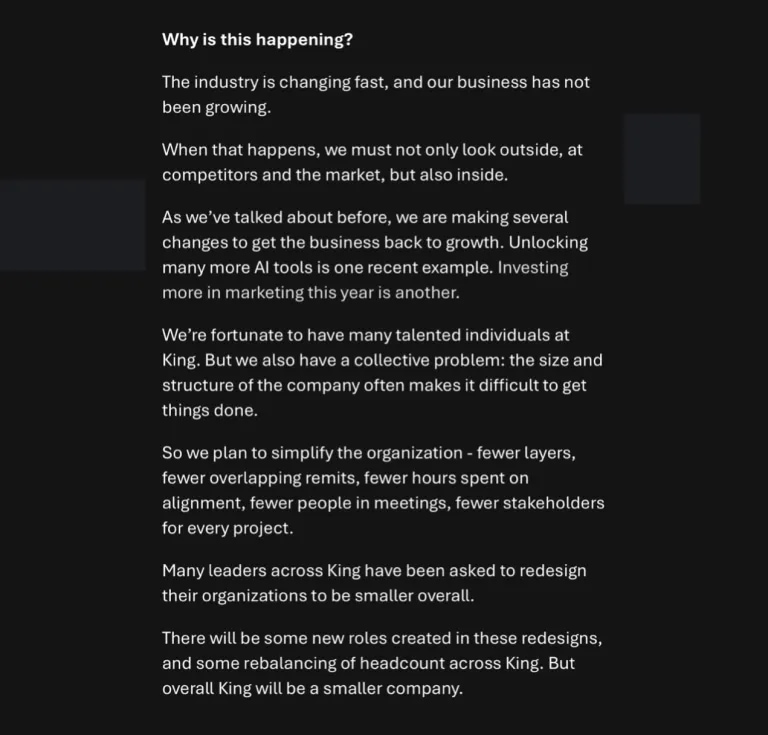In the latest turn of events in the gaming world, employees at King, the renowned developer behind Candy Crush, are facing a stark reality. Those who once trained AI systems are now being replaced by those very technologies.
Recent revelations from mobilegamer’s Neil Long shed light on this troubling shift, citing numerous anonymous sources and an internal memo detailing significant job cuts at King. The memo highlights that “the industry is changing fast” and that King’s business growth has stagnated, prompting a wide-scale restructuring.

This overhaul comes on the heels of Microsoft’s broader layoff of approximately 9,000 employees a few weeks back. The focus seems to be on “unlocking many more AI tools” as a strategy to rejuvenate King’s growth trajectory.
One insider remarked, “Most level design has been wiped out, which is astonishing considering the months spent developing tools to create levels more efficiently.” The source continued, “Now, those AI tools are essentially replacing the teams. Even the copywriting personnel are being removed due to AI tools that were crafted by the very individuals now at risk.”
Out of the mass layoffs, insiders indicated that about 200 of those cuts were from King. Employees are reportedly feeling demoralized, with one stating, “Morale is in the gutter” at the studio behind one of the mobile gaming industry’s biggest hits.
Another employee expressed their discontent: “Replacing people with AI tools is utterly disheartening. It’s all about efficiency and profits, despite the company performing well overall. We are supposed to foster more feedback loops, so cutting developers seems counterproductive. We need more hands, not fewer.”
According to the report, employees expect a new organizational structure to be released in September. However, some senior staff members are currently on paid leave, raising concerns about additional job cuts on the horizon.
Moreover, insiders reported that HR seems to be targeting employees who voice their dissatisfaction regarding the company’s changes.
What does it mean for the future of game development? Many are questioning whether AI can replace the creativity and insight that human designers bring to the table. It’s a discussion worth having as the industry continues to evolve, potentially transforming how games are made.
Is this trend likely to continue across other sectors within gaming? As AI grows increasingly capable, it’s plausible that many companies will consider similar moves. The question is: at what cost?
What are the long-term implications of AI replacing jobs in gaming? While AI can increase efficiency, it raises ethical questions about creativity and job security. Balancing technological advancement with the human element is crucial in any industry.
In conclusion, the upheaval at King is a reminder of the rapid changes in the gaming industry and beyond. For enthusiasts and professionals alike, it’s valuable to stay informed and engaged. For more insights and updates, continue exploring related topics on Moyens I/O.
